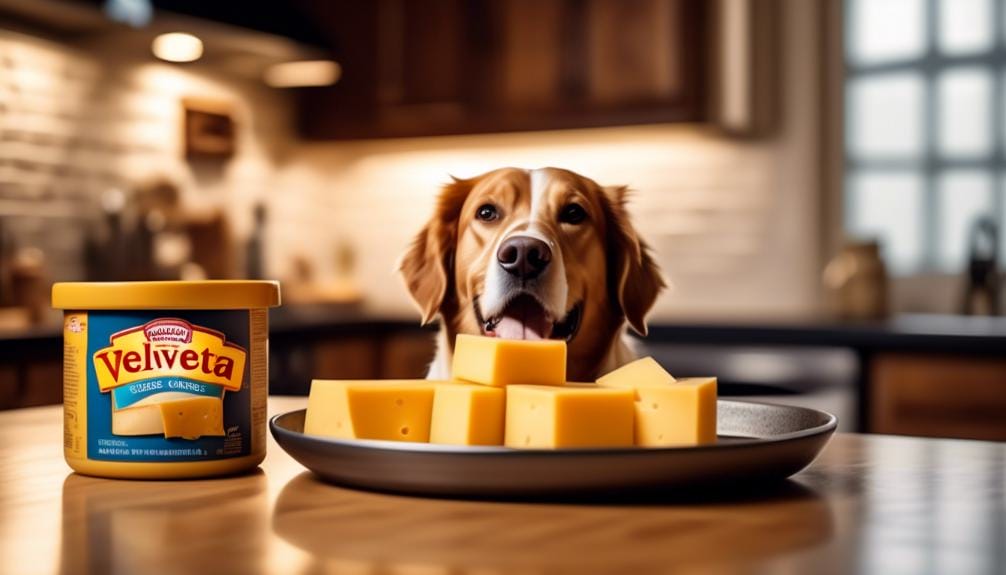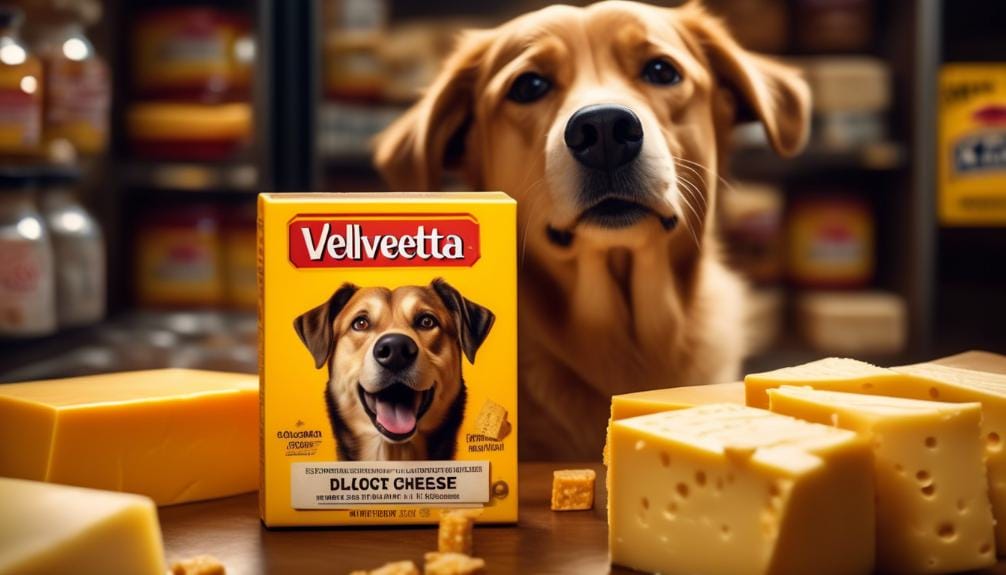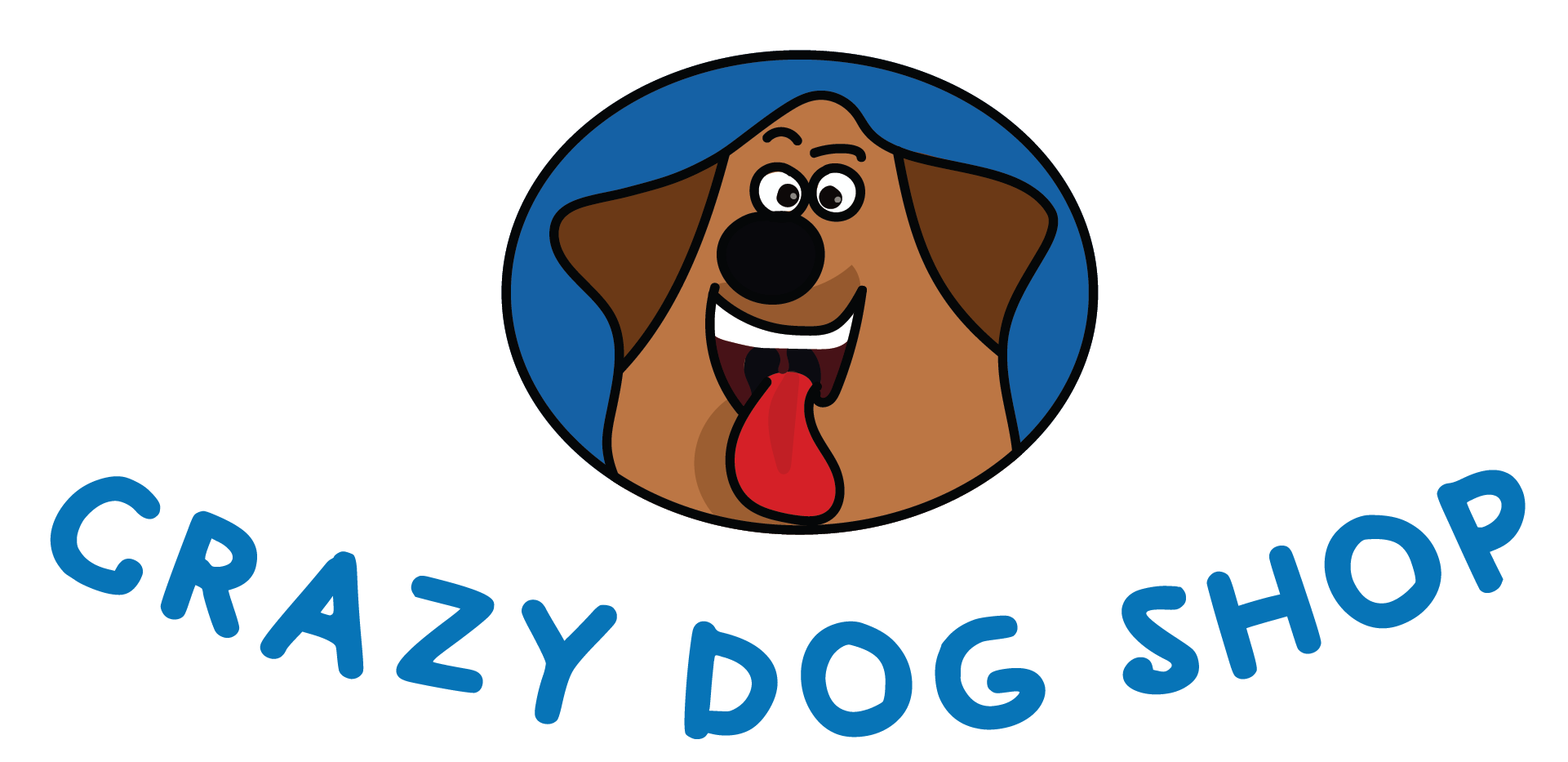Can Dogs Eat Velveeta Cheese? Unveiling Safe Cheese Choices for Pets
You may have heard that sharing some of your cheese with your furry friend is a delightful experience, but have you ever wondered if all types of cheese are safe for dogs?
Let’s explore the world of canine-friendly cheese choices and whether Velveeta cheese makes the cut.
While it’s tempting to sneak a piece of Velveeta to your pup, there are important considerations to keep in mind regarding the safety of this processed cheese product.
Key Takeaways
- Feeding Velveeta cheese to dogs can pose various risks, including high sodium content, digestive upset, lactose intolerance, and potential for obesity and heart disease.
- It is important to choose suitable cheese options for dogs, such as hard and aged cheeses with lower lactose content, low-fat and low-sodium cheeses like cottage cheese, and to avoid high-fat and processed cheeses.
- Lactose intolerance in dogs can lead to digestive issues, so it is crucial to be mindful of the amount of cheese fed to lactose-intolerant dogs and consult a veterinarian before introducing cheese into their diet.
- Consulting with a veterinarian is essential to determine the best cheese choices for dogs, considering their specific needs and health conditions.
Safety of Velveeta Cheese for Dogs
When considering the safety of Velveeta cheese for dogs, it’s crucial to understand the potential risks associated with its high sodium, lactose, fat, and calorie content. Feeding Velveeta to dogs can lead to kidney problems, obesity, gastric issues, and heart disease. Additionally, cheese with jalapeno peppers, such as Velveeta Mexican, can trigger gastroenteritis and other stomach problems in dogs.
It’s vital to choose low-fat, low-sodium cheeses like mozzarella, cottage cheese, Swiss, or cheddar for safer options. Always consider lactose intolerance, portion sizes, and potential digestive sensitivities when feeding cheese to dogs.
Dogs shouldn’t eat Velveeta cheese due to its high fat and sodium content. These can lead to health issues such as obesity and kidney problems. While it might be tempting to share your cheesy treats with your furry friend, it’s important to remember that their health should always come first. Opt for safer cheese options in moderation to ensure your dog’s well-being.
Suitable Cheese Choices for Pets

When choosing cheese for your pets, opt for hard and aged varieties that have lower lactose content, such as aged cheddar and Swiss cheese. These types of cheese are safer for dogs with lactose intolerance and are less likely to cause digestive issues.
Additionally, low-fat, low-sodium, and low-lactose cheeses like cottage cheese can be suitable options for feeding dogs. It’s important to remember that while cheese can be a tasty treat for your furry friend, it should be given in moderation. High-fat cheeses should be avoided as they can lead to health issues such as obesity and pancreatitis in dogs.
Cheese can be a source of essential fatty acids, which are beneficial for your dog’s health, but it’s crucial to select the right types of cheese to ensure it’s safe for consumption. Certain cheeses like blue cheese and feta should be avoided due to potential health risks, and spicy or processed cheeses are also not recommended for dogs.
Consult with your veterinarian to determine the best cheese choices for your pet, and always introduce new foods to your dog’s diet gradually to monitor any adverse reactions.
Lactose Intolerance in Dogs

If you’re wondering why certain cheese choices are recommended for dogs, it’s because many dogs are lactose intolerant due to a decrease in lactase enzymes as they age. Lactose intolerance means that your dog may have difficulty digesting lactose, a sugar found in milk and dairy products.
Cheese contains lactose, so it’s important to be mindful of the amount of cheese you feed your dog. Lactose intolerant dogs can experience digestive upset such as vomiting and diarrhea if they consume cheese. While some cheeses are lower in lactose, they still contain a high-fat content which can be difficult for dogs to digest.
Feeding too much cheese to a lactose intolerant dog can lead to an upset stomach. It’s crucial to consult your vet before feeding cheese to your dog, especially if they’ve a history of lactose intolerance. Always look for cheeses that are low in lactose and sodium when considering options for your furry friend’s treat.
Risks of Feeding Velveeta to Dogs

Feeding Velveeta to your dog can pose significant risks to their health and well-being, including potential kidney problems, sodium toxicity, and digestive issues. Here are the specific risks associated with feeding Velveeta to dogs:
- High in Sodium: Velveeta is high in sodium, and consuming too much of it can lead to kidney problems and sodium toxicity in dogs. This can have serious implications for your dog’s overall health.
- Digestive Upset: Velveeta, especially varieties like Velveeta Mexican that contain jalapeno peppers, can trigger gastroenteritis and other stomach problems in dogs. Dogs may experience digestive upset and discomfort after consuming Velveeta.
- Lactose Content: Dogs that are lactose-intolerant can experience adverse effects from the high lactose content in Velveeta. This can lead to gastric problems and other issues, causing discomfort and potential health complications for your pet.
Considering these risks, it’s important to be mindful of the potential dangers of feeding Velveeta to your dog. Opting for safer cheese choices can help prevent these health issues and ensure your dog’s well-being.
Safe Cheese Options for Canines

To ensure the well-being of your canine companion, it’s important to consider safe and suitable cheese options for their consumption. When adding cheese to your dog’s diet, it’s crucial to choose varieties that are lower in fat, sodium, and lactose. Below is a table of safe cheese options for dogs:
| Kind of Cheese | Amount of Lactose | Fat Content | Suitability for Dogs |
|---|---|---|---|
| Aged Cheddar | Low | Moderate | Safe |
| Swiss Cheese | Low | Low | Safe |
| Cottage Cheese | Low | Low | Safe |
| Cream Cheese | Moderate | High | Not Recommended |
These cheeses can be fed to your dog in moderation, as part of a complete and balanced diet. Remember that high-fat cheeses, spicy cheeses, and processed cheeses should be avoided due to potential health risks. It’s a good idea to consult with your veterinarian before adding cheese or any new food to your dog’s diet. By offering safe cheese options, you can provide your furry friend with a tasty treat while ensuring their well-being.
Frequently Asked Questions
What Is the Safest Cheese for Dogs?
The safest cheese for your dog is hard and aged, low-fat, low-sodium, and low-lactose options like cottage cheese, aged cheddar, and Swiss cheese. Avoid blue cheeses, processed cheeses, and spicy ones. Always consult your vet before introducing new foods.
Can Dogs Have Velveeta Mac and Cheese?
Sure, dogs should avoid Velveeta mac and cheese as it contains high sodium, lactose, fat, and calories, which can lead to health issues. Safer cheese choices for dogs include low-fat, low-sodium, and low-lactose options like cottage cheese, aged cheddar, and Swiss cheese. Always consult a vet before introducing new foods.
What Kind of Cheese Is Good for Dog Training?
For dog training, opt for low-fat, low-sodium cheeses like cottage, aged cheddar, or Swiss. Avoid toxic ingredients like onions, garlic, and spicy flavors. Moderation is key. Consult a vet for tailored advice on portion sizes and suitable options.
What Kind of Cottage Cheese Is Good for Dogs?
Low-fat, low-sodium cottage cheese is a good choice for dogs. It’s high in calcium and protein, beneficial for pets. Aged cheddar and Swiss cheese, lower in lactose, are also safe options. These reduce the risk of obesity and intestinal upset.
Conclusion
In conclusion, while dogs can enjoy cheese in moderation, Velveeta cheese isn’t a safe choice for them due to its high levels of sodium, lactose, fat, and calories.
It’s important to choose low-fat, low-sodium, and low-lactose cheeses like mozzarella, cottage cheese, or soft goat cheese for your furry friend.
Always consult with a veterinarian before introducing any new foods to your dog’s diet to ensure their safety and well-being.

